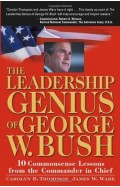Brokering Peace in Nuclear Environments: U.S. Crisis Management in South Asia
By: Moeed Yusuf
-
Rs 6,375.00
- Rs 7,500.00
- 15%
You save Rs 1,125.00.
Due to constant currency fluctuation, prices are subject to change with or without notice.
One of the gravest issues facing the global community today is the threat of nuclear war. As a growing number of nations gain nuclear capabilities, the odds of nuclear conflict increase. Yet nuclear deterrence strategies remain rooted in Cold War models that don't take into account regional conflict. Brokering Peace in Nuclear Environments offers an innovative theory of brokered bargaining to better understand and solve regional crises. As the world has moved away from the binational relationships that defined Cold War conflict while nuclear weapons have continued to proliferate, new types of nuclear threats have arisen. Moeed Yusuf proposes a unique approach to deterrence that takes these changing factors into account.
Drawing on the history of conflict between India and Pakistan, Yusuf describes the potential for third-party intervention to avert nuclear war. This book lays out the ways regional powers behave and maneuver in response to the pressures of strong global powers. Moving beyond debates surrounding the widely accepted rational deterrence model, Yusuf offers an original perspective rooted in thoughtful analysis of recent regional nuclear conflicts. With depth and insight, Brokering Peace in Nuclear Environments urges the international community to rethink its approach to nuclear deterrence.
One of the gravest issues facing the global community today is the threat of nuclear war. As a growing number of nations gain nuclear capabilities, the odds of nuclear conflict increase. Yet nuclear deterrence strategies remain rooted in Cold War models that don't take into account regional conflict. Brokering Peace in Nuclear Environments offers an innovative theory of brokered bargaining to better understand and solve regional crises. As the world has moved away from the binational relationships that defined Cold War conflict while nuclear weapons have continued to proliferate, new types of nuclear threats have arisen. Moeed Yusuf proposes a unique approach to deterrence that takes these changing factors into account.
Drawing on the history of conflict between India and Pakistan, Yusuf describes the potential for third-party intervention to avert nuclear war. This book lays out the ways regional powers behave and maneuver in response to the pressures of strong global powers. Moving beyond debates surrounding the widely accepted rational deterrence model, Yusuf offers an original perspective rooted in thoughtful analysis of recent regional nuclear conflicts. With depth and insight, Brokering Peace in Nuclear Environments urges the international community to rethink its approach to nuclear deterrence.
Insurgency and Counterinsurgency in South Asia
By: Moeed Yusuf
Rs 1,015.75 Rs 1,195.00 Ex Tax :Rs 1,015.75
Brokering Peace in Nuclear Environments: U.S. Crisis Management in South Asia
By: Moeed Yusuf
Rs 6,375.00 Rs 7,500.00 Ex Tax :Rs 6,375.00
Zubin Mehta: A Musical Journey (An Authorized Biography)
By: VOID - Bakhtiar K. Dadabhoy
Rs 892.50 Rs 1,050.00 Ex Tax :Rs 892.50
Insurgency and Counterinsurgency in South Asia
By: Moeed Yusuf
Rs 1,015.75 Rs 1,195.00 Ex Tax :Rs 1,015.75
No Exit from Pakistan - America's Tortured Relationship with Islamabad
By: Daniel S. Markey
Rs 1,695.75 Rs 1,995.00 Ex Tax :Rs 1,695.75
The Making of Pakistan A Study in Nationalism
By: K. K. Aziz
Rs 810.00 Rs 900.00 Ex Tax :Rs 810.00
The Origins of Political Order From Prehuman Times to the French RevolutioN
By: Francis Fukuyama
Rs 4,045.50 Rs 4,495.00 Ex Tax :Rs 4,045.50
Insurgency and Counterinsurgency in South Asia
By: Moeed Yusuf
Rs 1,015.75 Rs 1,195.00 Ex Tax :Rs 1,015.75
No Exit from Pakistan - America's Tortured Relationship with Islamabad
By: Daniel S. Markey
Rs 1,695.75 Rs 1,995.00 Ex Tax :Rs 1,695.75
The Making of Pakistan A Study in Nationalism
By: K. K. Aziz
Rs 810.00 Rs 900.00 Ex Tax :Rs 810.00
Picassos Brain The basis of creative genius
By: christine temple
Rs 1,402.50 Rs 1,650.00 Ex Tax :Rs 1,402.50
Thinking Through Islamophobia: Global Perspectives
By: S Sayyid And Abdoolkarim Vakil
Rs 1,695.75 Rs 1,995.00 Ex Tax :Rs 1,695.75
Pick a Story: a Pirate Alien Jungle Adventure
By: Sarah Coyle
Rs 1,100.75 Rs 1,295.00 Ex Tax :Rs 1,100.75
Fast Food Genocide - How Processed Food is Killing Us and What We Can Do About It
By: Joel Fuhrman
Rs 3,055.50 Rs 3,395.00 Ex Tax :Rs 3,055.50
Zubin Mehta: A Musical Journey (An Authorized Biography)
By: VOID - Bakhtiar K. Dadabhoy
Rs 892.50 Rs 1,050.00 Ex Tax :Rs 892.50
Insurgency and Counterinsurgency in South Asia
By: Moeed Yusuf
Rs 1,015.75 Rs 1,195.00 Ex Tax :Rs 1,015.75
Brokering Peace in Nuclear Environments: U.S. Crisis Management in South Asia
By: Moeed Yusuf
Rs 6,375.00 Rs 7,500.00 Ex Tax :Rs 6,375.00
Insurgency and Counterinsurgency in South Asia
By: Moeed Yusuf
Rs 1,015.75 Rs 1,195.00 Ex Tax :Rs 1,015.75
No Exit from Pakistan - America's Tortured Relationship with Islamabad
By: Daniel S. Markey
Rs 1,695.75 Rs 1,995.00 Ex Tax :Rs 1,695.75
The Making of Pakistan A Study in Nationalism
By: K. K. Aziz
Rs 810.00 Rs 900.00 Ex Tax :Rs 810.00












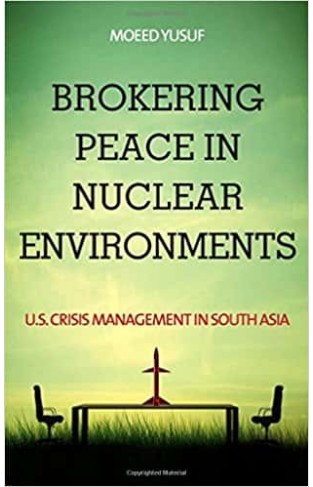
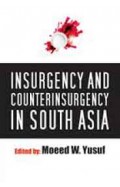
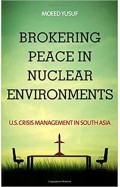
-120x187.jpg?q6)





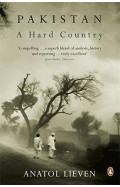
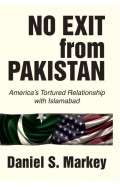
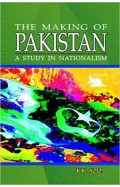





-120x187.jpg?q6)


-120x187.jpg?q6)



